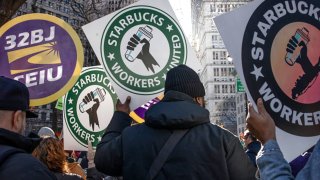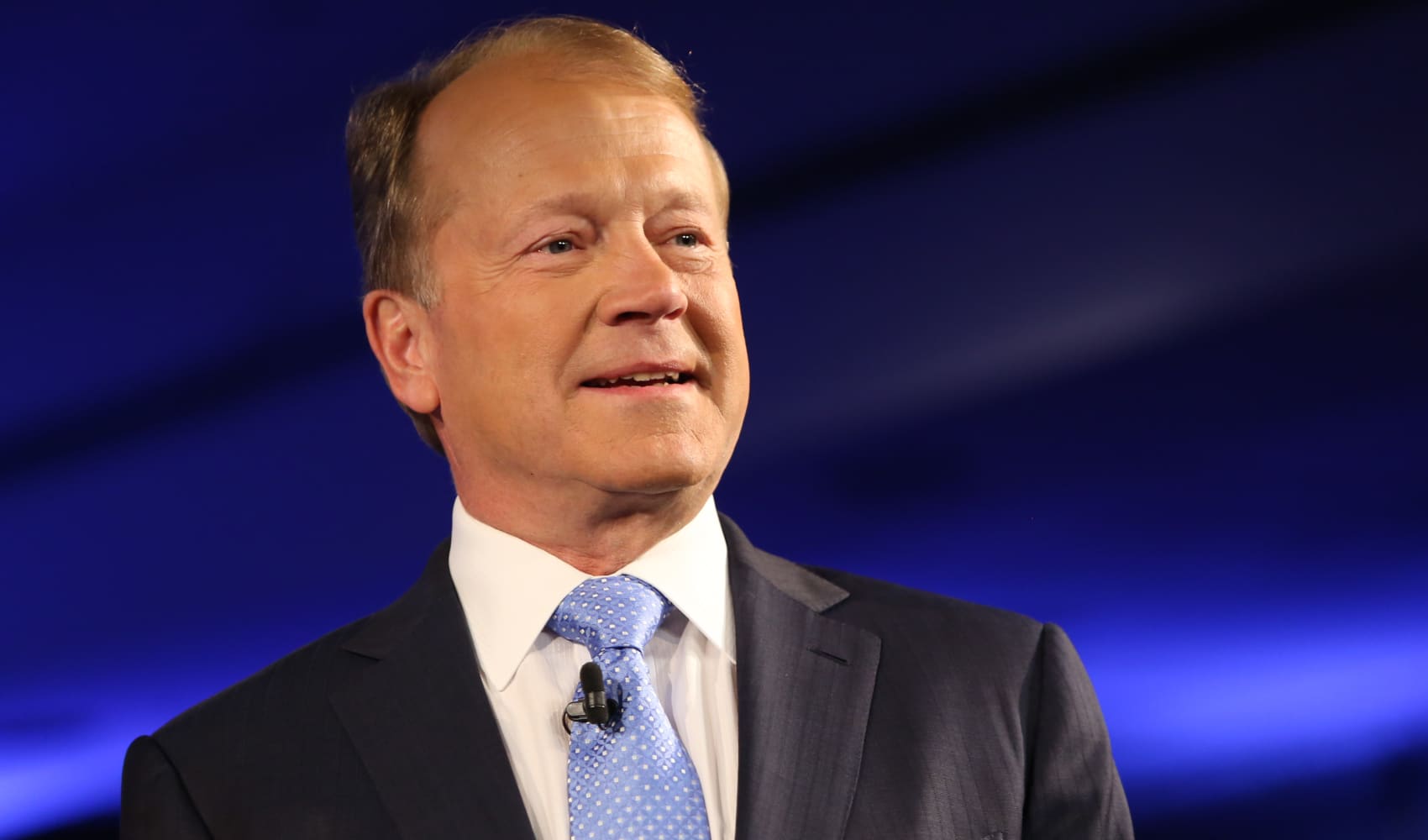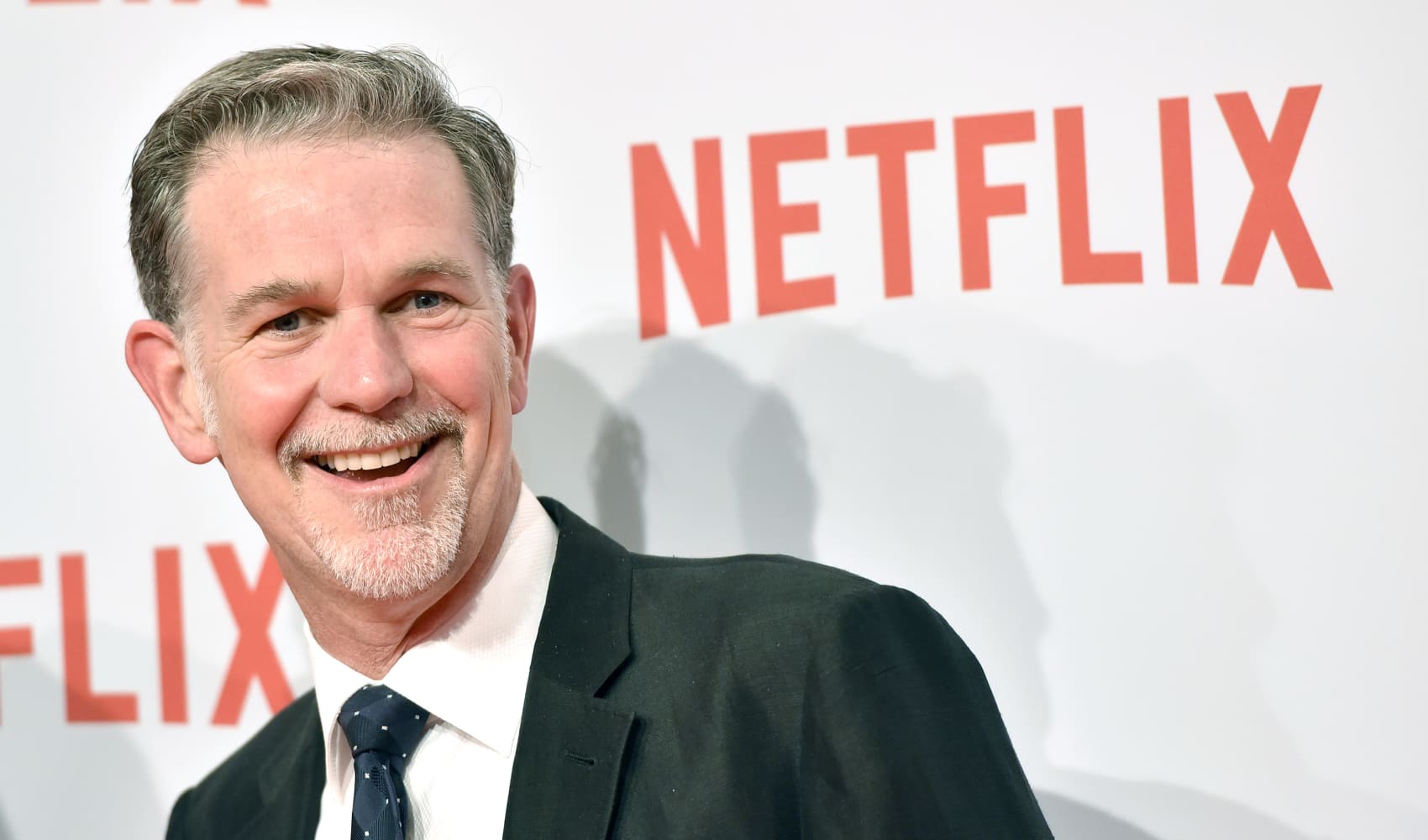
- Starbucks workers have filed more complaints with New York City, alleging that the coffee chain violated the Fair Workweek law.
- The allegations come as Starbucks baristas at more than 200 locations nationwide strike during the company's busy Red Cup promotion.
- Last year, Chipotle paid $20 million to workers to settle Fair Workweek violations and $1 million to the city.
Starbucks workers in New York City have filed 32 more complaints alleging that the coffee giant violated the city's labor laws.
New York's Fair Workweek law says that employers have to give their workers regular schedules from week to week, 14 days notice of their scheduled hours and extra pay for shift changes, among other requirements. Starbucks baristas have repeatedly accused the company of running afoul of the law: They have filed nearly 90 complaints with the city related to the law since February.
"We make every effort and have invested significant resources to ensure partner scheduling practices are in alignment with New York City's Fair Workweek Law," Starbucks said in a statement to CNBC.
We're making it easier for you to find stories that matter with our new newsletter — The 4Front. Sign up here and get news that is important for you to your inbox.
The allegations come as Starbucks baristas at more than 200 locations nationwide strike Thursday, on the company's busy Red Cup promotion day. To celebrate the holiday season, Starbucks every year gives away reusable red cups bearing the company's logo with any purchase.
Starbucks Workers United said the strike is protesting understaffing at the company's locations, particularly on promotion days. Workers are also demanding that Starbucks turn off mobile ordering on future promotion days.
Convenient mobile ordering has become important to Starbucks' business as customers increasingly prefer ordering from their phones instead of waiting in drive-thru lines or stores for their drinks. But mobile orders can overwhelm baristas quickly, especially on days when the company offers discounts or freebies. Mobile order and delivery accounted for a third of the company's sales in its latest quarter.
Money Report
Nearly two years after the union first won an election at a Starbucks store, more than 360 of Starbucks' roughly 9,000 company-owned locations have voted to unionize, according to National Labor Relations Board data. But no location has come close to a collective bargaining agreement with Starbucks yet.
For its part, Starbucks has said it's working to improve workers' jobs by automating boring tasks and raising pay. The chain recently said it will bump employees' wages by at least 3% at the start of next year.
"We are constantly striving to improve our partners' experience and make their jobs easier," Starbucks Chief Technology Officer Deborah Hall Lefevre said at the company's investor update in New York City on Nov. 2.
Sara Kelly, the company's chief partner officer, said at the same event that Starbucks has made "meaningful progress" in increasing scheduled hours, and will factor baristas' preferences into its scheduling software.
Starbucks has previously run afoul of New York City. The city's Department of Consumer and Worker Protection sued the company in 2022 for firing a barista involved in union organizing, alleging that his dismissal violated the "just cause" provision of the law.
If workers' allegations are proven, Starbucks could face a big penalty. Last year, Chipotle paid $20 million to workers, and $1 million to the city, to settle Fair Workweek violations.
"New York City passed the Fair Work Week law so workers like me would be able to sustain ourselves and our families," Alberto Oliart, a barista in Brooklyn, said in a statement to CNBC. "But Starbucks is blatantly ignoring the law, making it difficult for us to survive."






